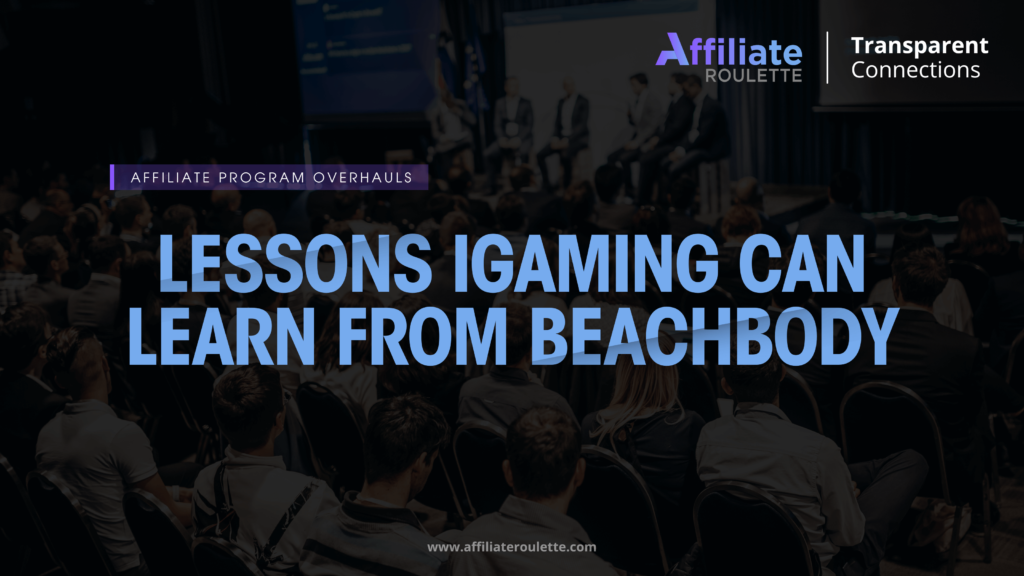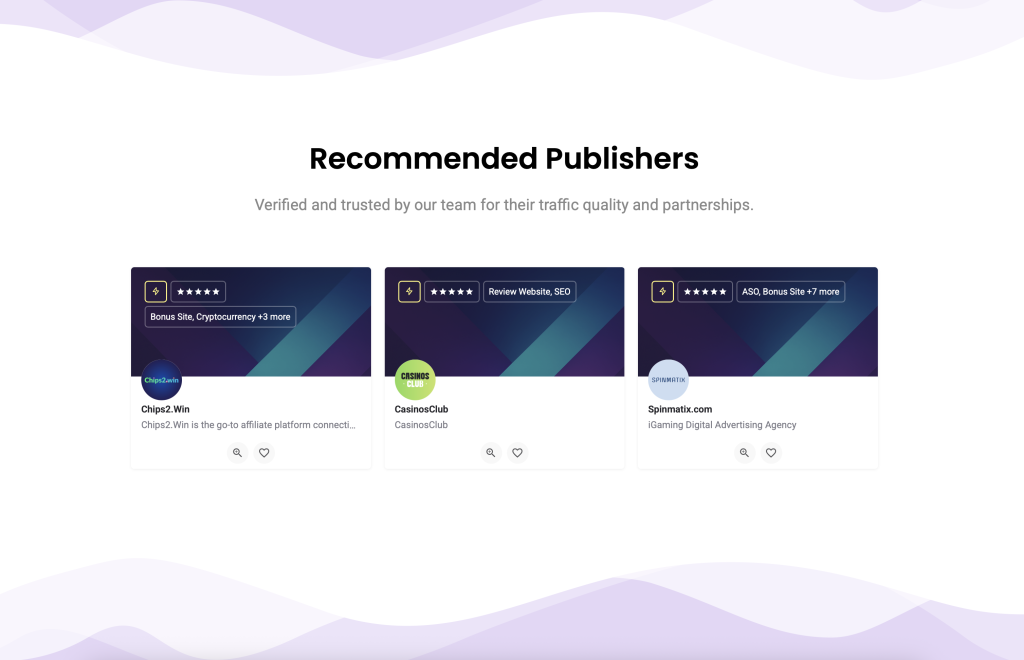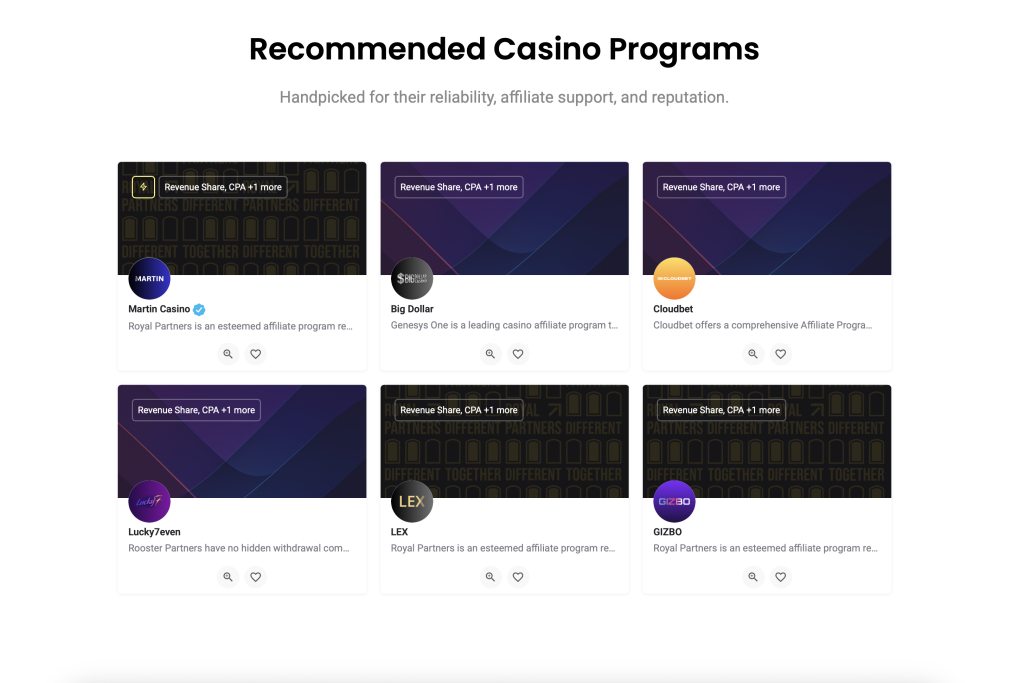Lessons from Beachbody’s Shift to a Single-Level Model

Affiliate marketing structures are evolving, and companies across industries are rethinking how they reward and retain their partners. A recent example comes from Beachbody, a well-known fitness and wellness brand, which transitioned from a multi-level marketing (MLM) structure to a single-level affiliate model.
This shift provides valuable insights for iGaming affiliates and affiliate managers looking to optimize their programs. In this article, we explore why Beachbody made this change, how it benefits affiliates, and what the iGaming industry can learn from it.
Why Did Beachbody Move to a Single-Level Affiliate Model?
Beachbody’s previous multi-level marketing (MLM) system allowed participants to earn commissions not only on their own sales but also on those generated by their recruits. While MLM structures can create exponential growth, they often face regulatory scrutiny, retention challenges, and credibility issues.
By shifting to a traditional single-level affiliate model, Beachbody simplified its approach, ensuring that commissions are now earned based solely on direct referrals and product sales. This transition aligns more closely with performance-based marketing models, where affiliates are rewarded fairly for their direct impact.
Key Takeaways for iGaming Affiliates & Managers
1. Transparency Builds Trust
The iGaming industry thrives on trust and credibility. Operators and affiliate managers must prioritize transparency in their commission structures. Overcomplicated or vague payment systems can lead to disputes, skepticism, and lower retention rates.
👉 Lesson for iGaming: Clear commission structures, transparent tracking, and well-defined payout terms foster long-term partnerships.
2. Reward Performance, Not Recruitment
Beachbody’s MLM model encouraged recruitment-based earnings, which can be problematic because it shifts the focus from genuine customer acquisition to simply expanding the network. Their move to a single-level system ensures that affiliates are paid based on actual sales performance.
👉 Lesson for iGaming: Operators should structure their affiliate programs around quality traffic and conversions rather than incentivizing affiliates to recruit more affiliates. This approach ensures sustainable, high-value partnerships.
3. Simplified Payout Models Attract More Affiliates
One of the major drawbacks of MLM structures is their complex payout system, which can discourage potential affiliates from joining. By switching to a straightforward commission model, Beachbody made it easier for affiliates to understand how much they will earn and what is expected of them.
👉 Lesson for iGaming: Affiliate managers should keep payout structures simple and predictable. Offering flexible CPA, revenue share, or hybrid models with clear terms ensures that affiliates remain engaged and motivated.
4. Compliance Matters More Than Ever
MLM models have long been under scrutiny by regulatory bodies due to pyramid scheme concerns and unclear compensation models. Beachbody’s move was likely driven, in part, by compliance challenges and the need to align with evolving legal standards.
👉 Lesson for iGaming: With global gambling regulations tightening, affiliate managers must ensure full compliance with advertising, responsible gaming, and commission models to avoid legal risks and maintain credibility.
5. Stronger Focus on Brand Loyalty & Quality Leads
Beachbody’s new model incentivizes affiliates to generate real sales, rather than focusing on signing up new members. This shift helps improve customer retention and brand loyalty.
👉 Lesson for iGaming: Operators should work with affiliates who focus on player quality rather than volume, ensuring long-term profitability and higher lifetime value (LTV) per player.
What Can iGaming Affiliate Managers Do Differently?
For affiliate managers and operators looking to optimize their affiliate programs, here are some actionable steps based on Beachbody’s successful transition:
Refine Your Commission Structure – Offer clear CPA and revenue share deals without hidden terms.
Prioritize Compliance – Stay up to date with local and international gambling regulations to ensure fair and ethical partnerships.
Improve Tracking & Transparency – Provide real-time tracking and performance analytics to affiliates.
Reward High-Value Traffic – Focus on affiliates that deliver engaged players with strong retention rates.
Encourage Long-Term Partnerships – Offer loyalty incentives to affiliates who consistently drive quality traffic.
Final Thoughts
Beachbody’s transition to a single-level affiliate model highlights the importance of clarity, fairness, and performance-based incentives. The iGaming industry, which already relies heavily on affiliate partnerships, can learn from this shift by ensuring transparent commissions, rewarding quality over quantity, and maintaining regulatory compliance.
For iGaming affiliates, the lesson is clear: working with trusted platforms that offer straightforward commission structures and long-term growth potential is the best way to succeed.
As the industry continues to evolve, both affiliates and operators must adapt to changing trends and ensure partnerships remain ethical, transparent, and profitable.


